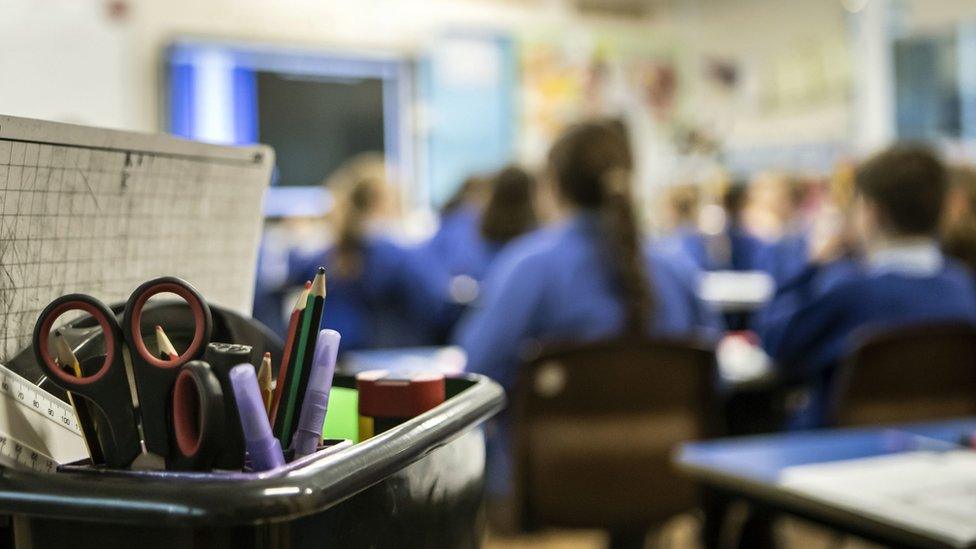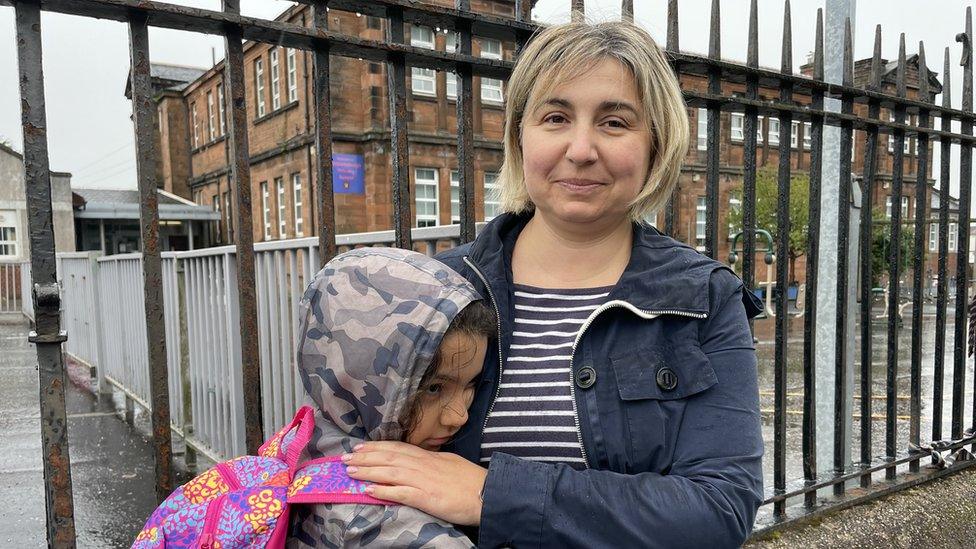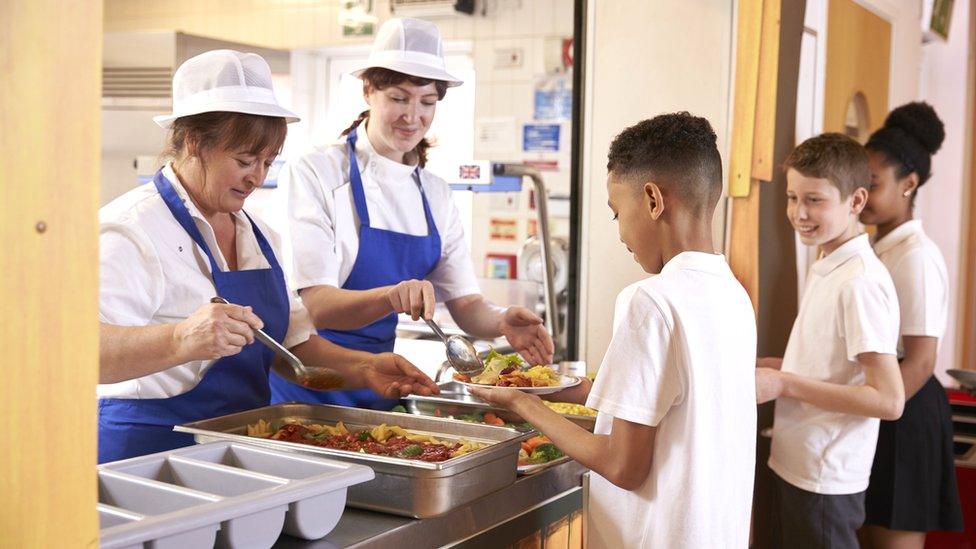Scottish schools face closures in widespread strike actions
- Published
- comments

Schools face three days of strikes in September
Schools across Scotland face weeks of closures and disruption after a third union rejected a new pay offer.
Unite has joined Unison and the GMB in turning down the proposal from council body Cosla. All three have warned time is running out to avert strike action.
Parent groups have raised fears school closures will have a "detrimental" effect on their children.
But on Thursday Cosla said there was no more money available for pay without cuts to jobs and services.
The latest offer from the body, which represents Scotland's 32 councils, is a two-part plan which it said would give workers at least a £1,929 increase in annual salary by 1 January 2024.
The decision to reject this means three out of four schools could be closed by a programme of strikes beginning with a three-day walkout on 26, 27 and 28 September.
On Friday Unite general secretary Sharon Graham said: "It has taken Cosla five months to increase their offer by a measly 38 pence a week for the lowest paid council workers.
"Unite's local government representatives rightly rejected this offer. The fight for better jobs, pay and conditions in local government goes on, and if needs be by strike action. Unite will back its members all the way."
'Meaningful discussions'
Unison has already said Cosla has until 20 September to "significantly improve" the offer and prevent walkouts.
GMB Scotland dismissed the latest offer as "far too little, far too late" to avoid the upcoming strikes.
First Minister Humza Yousaf said he had already provided Cosla with additional funding to help negotiation in the pay offer and hoped that this would be enough.
Calling on both sides to continue "meaningful discussions", he said: "We'll continue to do what we can to support those discussions but they are negotiations for Cosla and nobody… wants to see strike action and our schools closed."
Scottish Labour Leader Anas Sarwar said the Scottish government needed to show leadership and get round the table with Cosla and the trade unions and strike a deal that is "fair for workers and fair for those that require council services."
The three unions had to ballot each council area separately and this has led to a complex picture of who has the right to strike across the country.
'Frustrated' parents
Only six out of the 32 councils will be unaffected. These are the areas where the unions did not win a mandate.
They are Argyll and Bute, East Ayrshire, East Lothian, Midlothian, Scottish Borders and West Lothian.
No council has said what effects these strike days will have but the unions expect the actions to lead to widespread school closures.
Parents outside a school in Paisley spoke about the effects the industrial action could have on their childcare.

Paul Lumsden says he hopes the dispute is resolved as quickly as possible
Paul Lumsden said: "It's obviously disruptive to the kids. I hope the staff get looked after and the outcome is resolved as quickly as possible.
"It means we have to get more childcare arranged. We've got childcare arrangements in place but it's not that convenient having to chop and change to ask parents and grandparents."
Zornista Koleva said: "It will bring some difficulty for parents like me. I think if they need to fight for better conditions they need to go for it. I definitely need to change my working days.
"I have three kids so I will need to take some time off probably. I feel a bit frustrated as it feels last minute."

Zornista Koleva says she will need to take time off on strike days
Speaking on BBC Radio's Good Morning Scotland programme, Leanne McGuire, of the Glasgow City Parents Group, said the latest strikes felt like "history repeating itself".
It is the fourth year of disruption following the Covid lockdowns and teacher strikes.
She told the programme: "My concern is that we start to feel that this is the new normal in schools and it really shouldn't be.
"Pupils should be able to get through their full school year without any disruption, regardless of what that disruption is for."
Ms McGuire said there was a lot of sympathy for the striking workers and anger at Cosla, the councils and the Scottish government that the dispute had not been settled.
She added: "When these talks come down to the wire, that's where families get really frustrated because we don't know what plans to put in place.
"That's where people start getting really frustrated about it."
Robert Woolley, of the Highland Parent Council Partnerships, said he was worried school closures were having a detrimental effect on pupils who were forced to learn alone at home.
"I think it's detrimental to the social aspect of life being stuck behind a screen. It's not normal. You worry about the future of your children," he said.
Related topics
- Published14 September 2023

- Published13 September 2023

- Published7 September 2023

- Published6 September 2023

- Published25 August 2023
